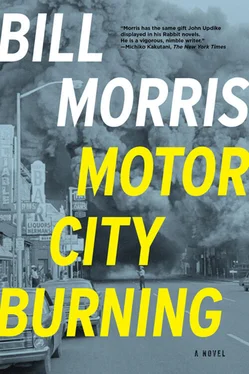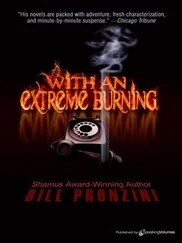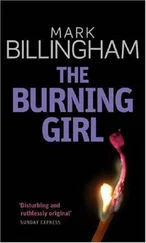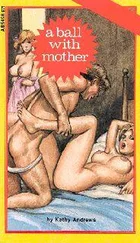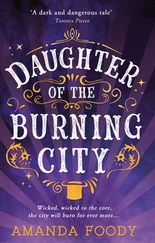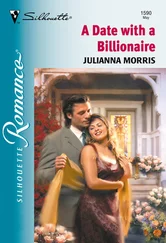The next afternoon, feeling subdued but not unhappy, Willie and Octavia watched the opening game of the World Series at the Chit Chat. Erkie sat on the barstool between them, chain-smoking, chasing shots of Old Overholt with Stroh’s and sending a torrent of abuse at the overmatched Tiger batters. When Bob Gibson struck out the side in the ninth inning, Erkie bellowed, “ Seventeen a y’all struck out? Yain’t nothin but a buncha born-insecure, rat-soup-eatin, barnyard muth-a- fuckas !” Willie was the only person in that morgue who laughed.
After the game Octavia dropped Willie off at his apartment and he went right back to work at the typewriter. He worked deep into the night, until he finished a rough draft of the story about the night Helen Hull died.
He had to work the lunch shift at Oakland Hills the next day, but his Uncle Bob was the only one on the staff who did a lick of work. All the other waiters and busboys stood along the walls in the packed men’s grill to watch Mickey Lolich try to atone for yesterday’s disaster. Lolich pitched brilliantly, even hit the first home run of his career, and the Tigers won with surprising ease, 8–1.
There was no game the next day as the teams traveled from St. Louis to Detroit. Willie had the day off and he spent it at home polishing his account of what had happened on the roof of the Larrow Arms. It was already good, but he wanted to make it perfect. Clarence Rawls had moved out West somewhere, but Willie didn’t want to give him up, so he’d changed Clarence’s name to Tyrone Bell and changed his appearance, moved him into a different apartment. Willie had also decided to make Tyrone Bell the killer. It was a little lie that would preserve a larger truth — that Wes didn’t deserve to go to prison.
Late in the afternoon, just as he was getting ready to knock off for the day, Walter Mitchell called from Washington. It was Walter who’d convinced the editors at Ebony to run six installments from Willie’s memoir — it was going to be called “Death of the Dream”—and now Walter was calling to tell him he’d taken the liberty of slipping the first three installments to Dreyfus Trotter, an editor at McGraw-Hill who used to work at Ebony , another Tuskegee man. Trotter wanted to talk to Willie about publishing his entire memoir in hardcover. Walter gave Willie Trotter’s phone number in New York and told him to call him immediately. Just before he hung up, Walter said his spare bedroom was cleaned up and Willie could move in any time. Willie told him he would show up right after the World Series. Then he dialed the number in New York.
Dreyfus Trotter didn’t sound black. He sounded vaguely English. “Mr. Bledsoe,” he began, “from what I’ve seen so far I’m of the opinion that your story will belong on the same shelf with Soul on Ice . In a word, I find it brilliant.”
In a word, Willie was speechless.
“Are you still there, Mr. Bledsoe?”
“Yes, I’m right here.”
“Have you read Soul on Ice ?”
“I read it last week, as a matter of fact.”
“I edited the book, which, as you’re surely aware, Mr. Cleaver wrote while he was incarcerated.” He paused to let that credential sink in. “I trust you’ll agree with me that the source of the book’s power is its candor. Its refusal to pull punches, if you will.”
“I agree.” Any black man in America who openly admits to raping white women — and calls it an “insurrectionary” act — cannot be accused of pulling his punches.
“I’m assuming you saw Walter’s photo essay in Ebony about the Detroit riot.”
“Of course.”
“He tells me you were with him when he was arrested.”
“That’s correct.”
“I’m curious, are you planning to include that experience in your memoir?”
“As a matter of fact I spent this afternoon working on that chapter. I’ve just decided to make it the book’s ending.”
“Would you be so good as to tell me a bit about that night?”
Willie realized Dreyfus Trotter was asking to be sold a bill of goods. Willie also realized that Dreyfus Trotter was hoping he wouldn’t pull any punches. So Willie told him, as dispassionately as he could, about that horrific night, beginning when he and Walter got arrested, continuing to the moment bloody Wes knocked on his door, and ending when Willie and Wes and “Tyrone Bell” hustled down off the roof of the Larrow Arms while a woman lay dying in the Harlan House Motel. Willie even told Dreyfus Trotter the part he hadn’t told Walter yet — about getting taken in for questioning by the detectives and learning the identity of Helen Hull’s killer from them. The only thing Willie didn’t tell Dreyfus Trotter was the killer’s name.
Trotter said, “Do you intend to name the killer in your book?”
“Yes, but I don’t want to give it away yet.”
Trotter chuckled. “Very shrewd of you.”
Willie was thinking, You got no idea how shrewd.
“I should very much like to read that chapter, Mr. Bledsoe. Are you planning to include it in your Ebony series?”
“No. The current plan is to end the series with the 1964 Democratic convention — you know, when they refused to seat the black delegates from Mississippi — because that was when I dropped out of the movement. The Ebony series is about my disillusionment with the civil rights movement, not what happened to me afterwards.”
“I’m guessing that the chapter you just described to me — about your arrest and what happened on that rooftop — I’m guessing that’s going to be the most powerful passage of the entire book.”
“I think you’re right. I hope you’re right.”
“Aren’t you worried about possible legal repercussions? Possibly a charge of accessory to a murder?”
“No, because I didn’t kill anybody — or help anybody kill anybody. Did they charge Eldridge Cleaver for those rapes he admitted committing?”
“No, they did not.” There was a pause, a rustling noise. Then Trotter said, “Could you possibly come to New York, Mr. Bledsoe? Based on what I’ve read and what you’ve just told me, I should very much like to talk to you in person about publishing your memoir in hardcover. I think it would be advantageous for us to meet as soon as possible to discuss contract terms.”
Willie knew that the World Series would be over by the following Thursday at the latest — if it went to seven games, which seemed unlikely unless Bob Gibson got run over by a bus. He told Dreyfus Trotter he could leave Detroit late next Thursday.
“I assume you’ll fly?” Trotter said.
“No, I’m driving.” He didn’t tell him he’d never been on an airplane and was deathly afraid of the things. He told him he was moving in with Walter in Washington, and could stop in New York on his way to D.C.
“Very well then. Shall we say four o’clock next Friday afternoon in my office?”
Willie wrote down the address of the McGraw-Hill Building. In parting, Dreyfus Trotter got him to promise he would bring the riot chapter to New York and would not show it to the people at Ebony or anyone else. As soon as Willie hung up he phoned Clyde Holland and asked him what he should do when he got to New York.
“The one thing you don’t do, Alabama, is you don’t sign nothin,” Clyde said. “He offers you a contract you show it to me before you sign it. Got that?”
“Got it.”
“Say, I’m glad you called. Du and me got an extra ticket for tomorrow’s game. Upper-deck in right field. Ain’t the best seats in the house, but—”
“My answer’s hell yes.”
“I’ll leave the ticket at Will Call.”
Willie’s next call was to Dick Kowalski at Oakland Hills, telling him he would not be coming back to work. To Willie’s surprise, Simon Legree took the news well, even wished him luck in New York and D.C. After that call, Willie started packing up the apartment.
Читать дальше
